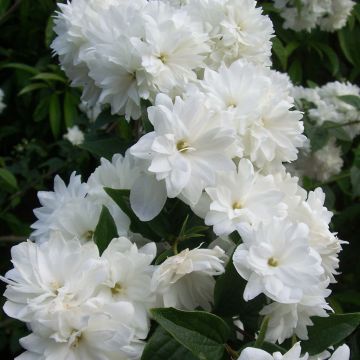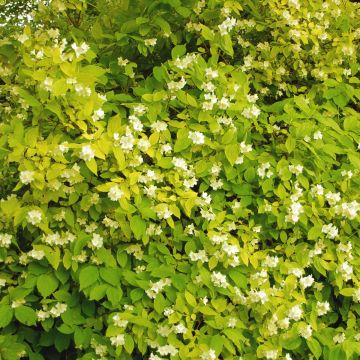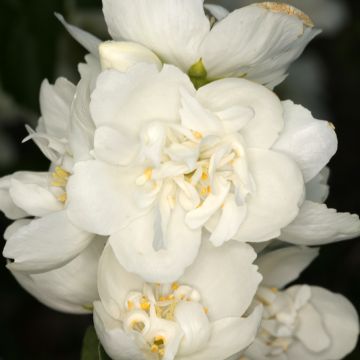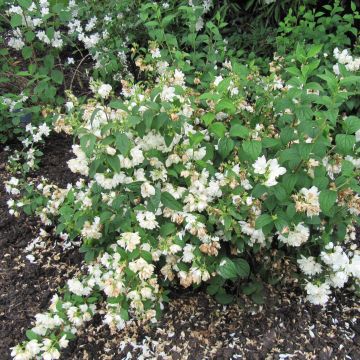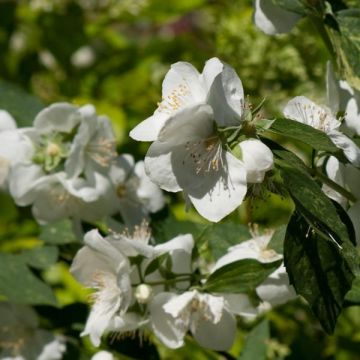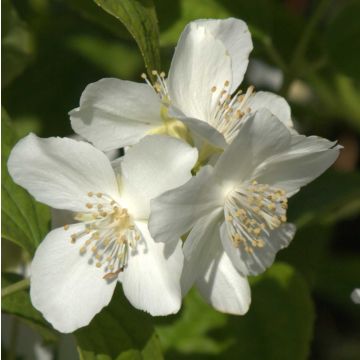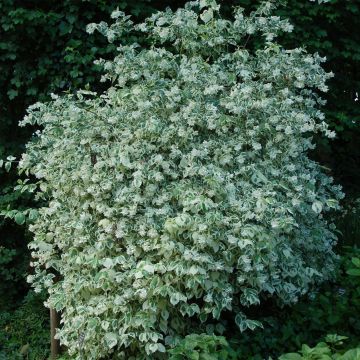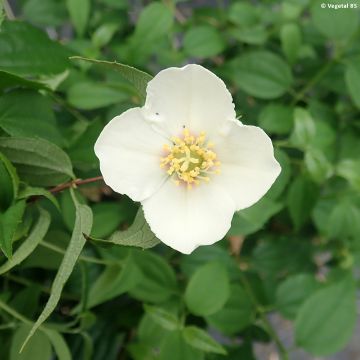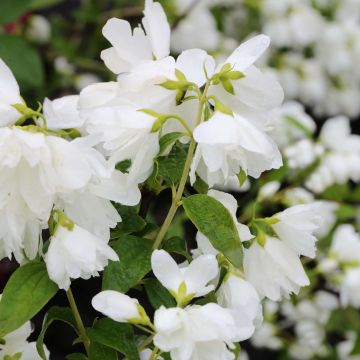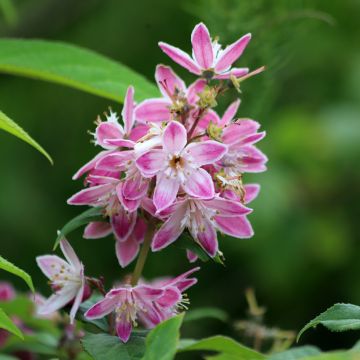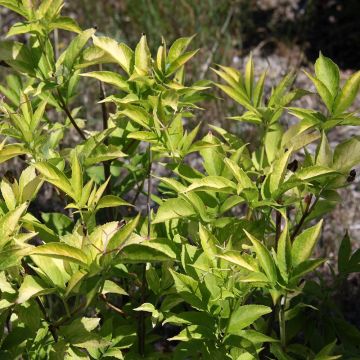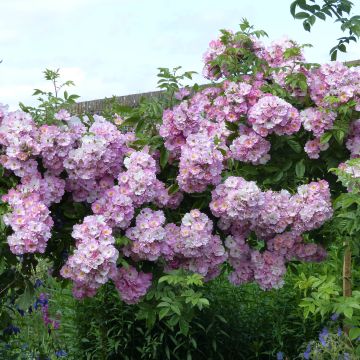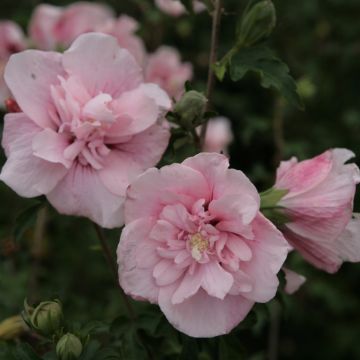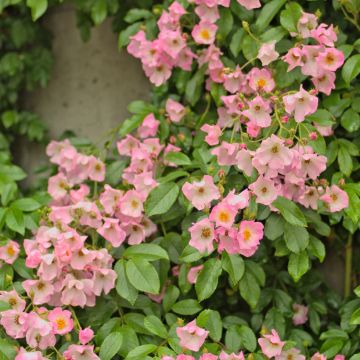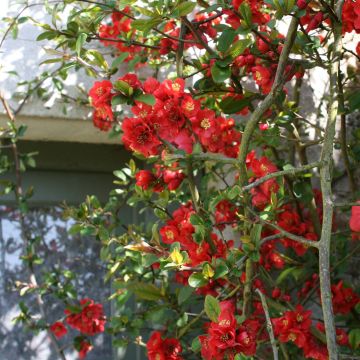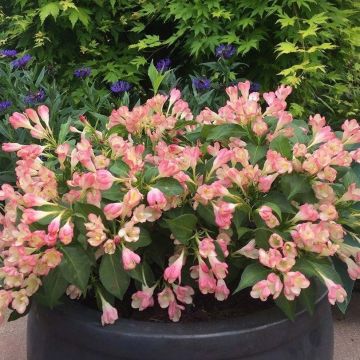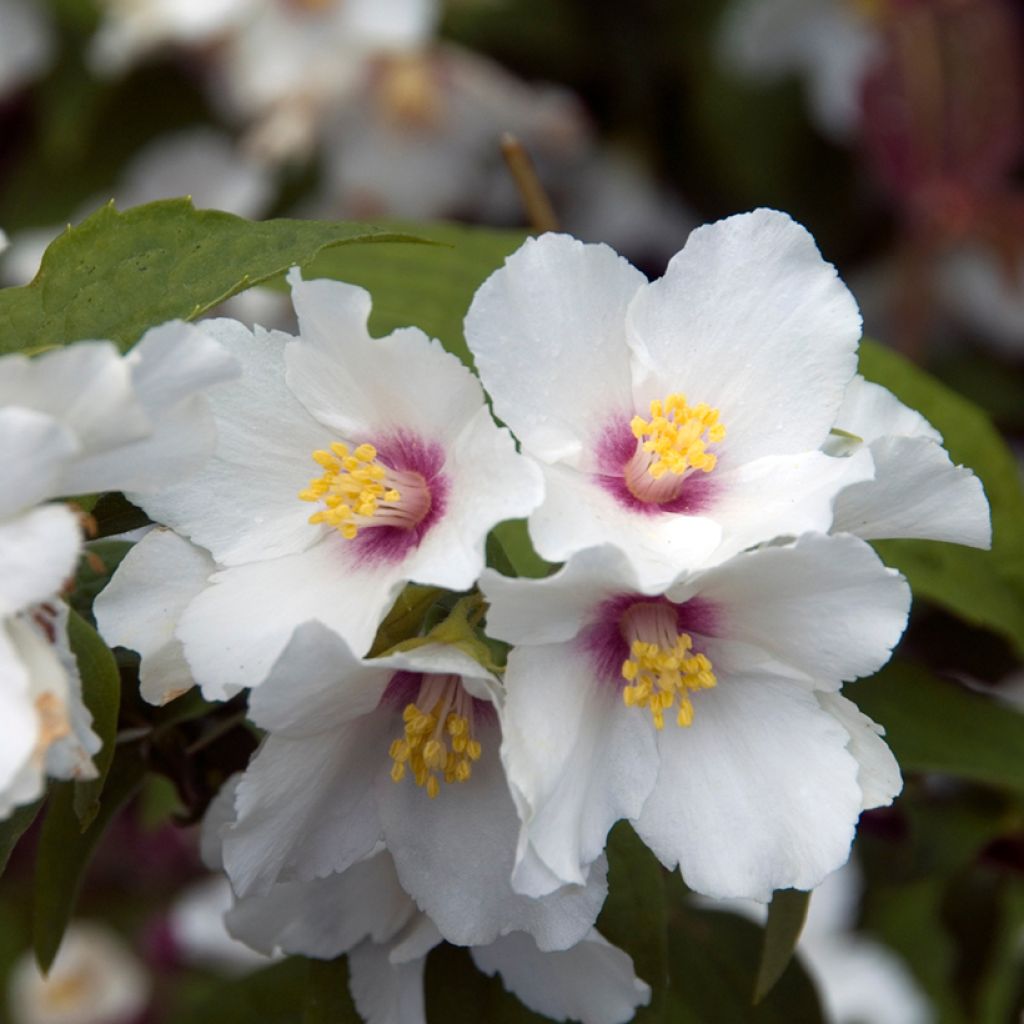

Philadelphus Beauclerk
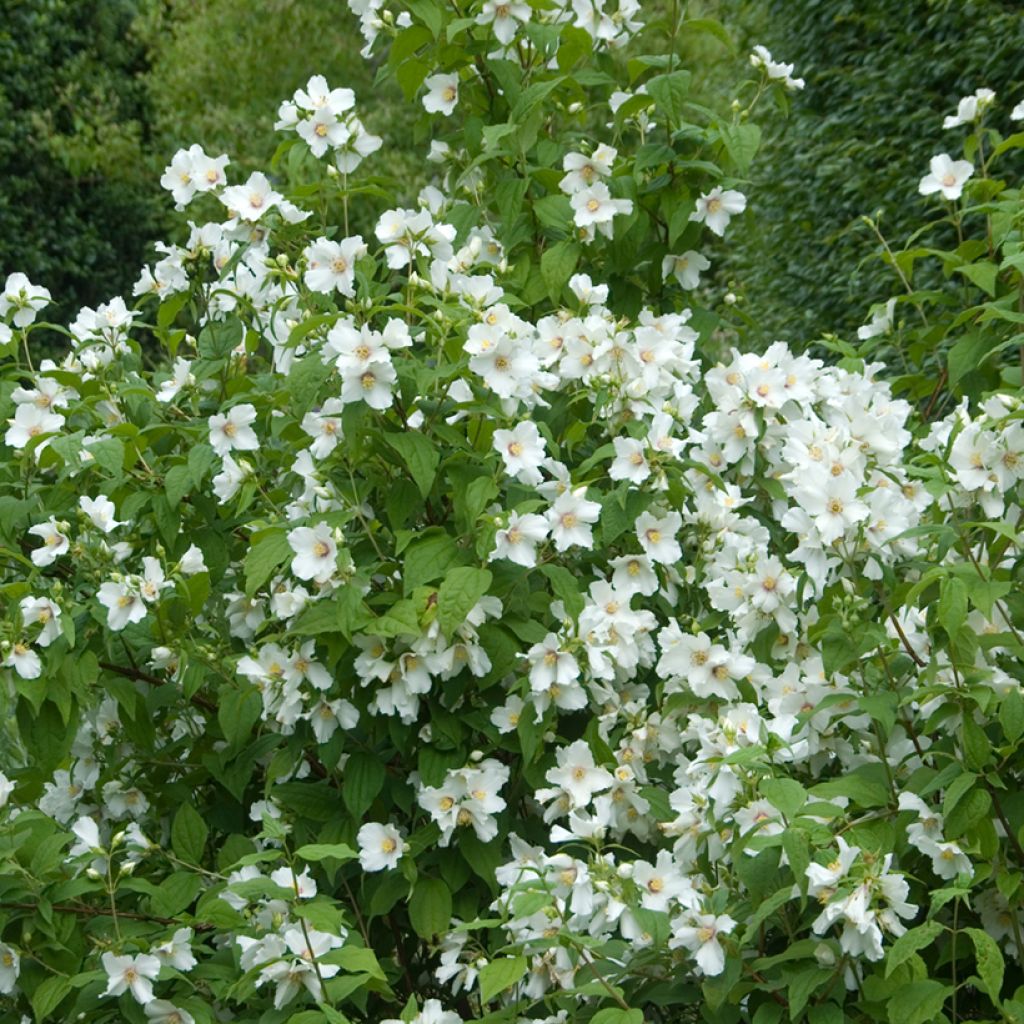

Philadelphus Beauclerk
Philadelphus Beauclerk
Philadelphus Beauclerk
Mock-orange, Syringa
Plant and delivery met my expectations.
hugo, 27/02/2025
Special offer!
Receive a €20 voucher for any order over €90 (excluding delivery costs, credit notes, and plastic-free options)!
1- Add your favorite plants to your cart.
2- Once you have reached €90, confirm your order (you can even choose the delivery date!).
3- As soon as your order is shipped, you will receive an email containing your voucher code, valid for 3 months (90 days).
Your voucher is unique and can only be used once, for any order with a minimum value of €20, excluding delivery costs.
Can be combined with other current offers, non-divisible and non-refundable.
Home or relay delivery (depending on size and destination)
Schedule delivery date,
and select date in basket
This plant carries a 24 months recovery warranty
More information
We guarantee the quality of our plants for a full growing cycle, and will replace at our expense any plant that fails to recover under normal climatic and planting conditions.
Would this plant suit my garden?
Set up your Plantfit profile →
Description
The Philadelphus 'Beauclerk' is a variety of Mock Orange that stands out with its beautiful white cup-shaped flowers, delicately tinged with pink at the center. With its tender green foliage and angular branches, and above all its powerful fragrance, it is the epitome of a romantic plant. Blooming in early summer, it will perfume your garden for several weeks. Like all Mock Oranges, 'Beauclerk' is a hardy, deciduous bush that is very easy to grow in ordinary soil, in full sun or partial shade. Plant it in a rustic flower bed or in a small free hedge, along a path or under a window.
The Philadelphus are all deciduous bushes from the Hydrangea family, native to temperate regions of the northern hemisphere, particularly East Asia and North America. The approximately 60 species that make up this genus were first crossed in France by Lemoine and Jacques, then in the United States, with the fragrance of the flowers sometimes being forgotten in favor of more spectacular, double-flowering varieties. Not demanding, Mock Oranges can sometimes take a while to establish themselves. They should be regularly pruned after flowering, removing the oldest stems, to maintain a beautiful shape and ensure abundant flowering.
The 'Beauclerk' Mock Orange is a horticultural hybrid that forms a medium-sized bush, with a bushy habit, reaching 2 to 2.50 meters (6 feet 7 inches to 8 feet 2 inches) in all directions. Its healthy leaves, a tender green with well-marked veins and pointed tips, are arranged opposite each other. This foliage provides a beautiful setting for the summer flowering that extends from June to July. Its beautiful single flowers, 5 cm (2 in) in diameter, appear at the ends of the branches. They have a cup shape and their slightly undulated petals are adorned with a small pinkish blotch at the base, accentuating their romantic appearance. Their orange fragrance will perfume your summer days and contribute to the poetic charm of this bush. This plant is one of the easiest to succeed in the garden. It grows in ordinary soil, tolerating limestone, and only requiring a bit of moisture to grow. Appreciating a sunny exposure, it will also grow in partial shade. Hardy down to -20°C, it will find its place in most regions, in a romantic, natural, or even wild garden.
This Poet's Jasmine, suitable for all types of gardens and easy to grow, is ideal for beginner gardeners. 'Beauclerk' will be perfect in the background of mixed borders, combined with other bushes or in a flowery rustic hedge. Plant it near the house, terrace, or paths to fully enjoy its intense fragrance. For a worry-free garden, associate it in a flower bed with other easy plants, such as the Forsythia x intermedia Lynwood with its yellow flowers that brighten up the short days of February-March, followed by the Thunberg Spirea with its abundant white flowering in March-April, and whose natural appearance will perfectly match that of the Mock Orange. The little-known Weigela middendorffiana, a botanical species with lovely yellow flowers, will transition with the flowering of 'Beauclerk'. And to end the season, nothing beats a Hibiscus syriacus Lavender Chiffon, a beautiful Althaea with very romantic pink-purple flowers.
Report an error about the product description
Philadelphus Beauclerk in pictures
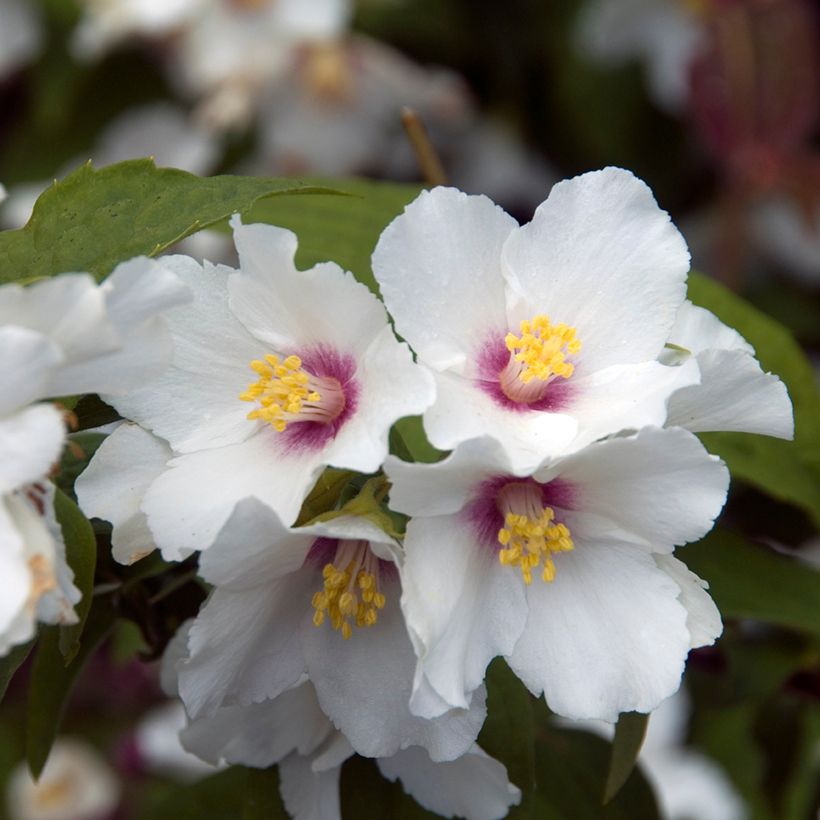

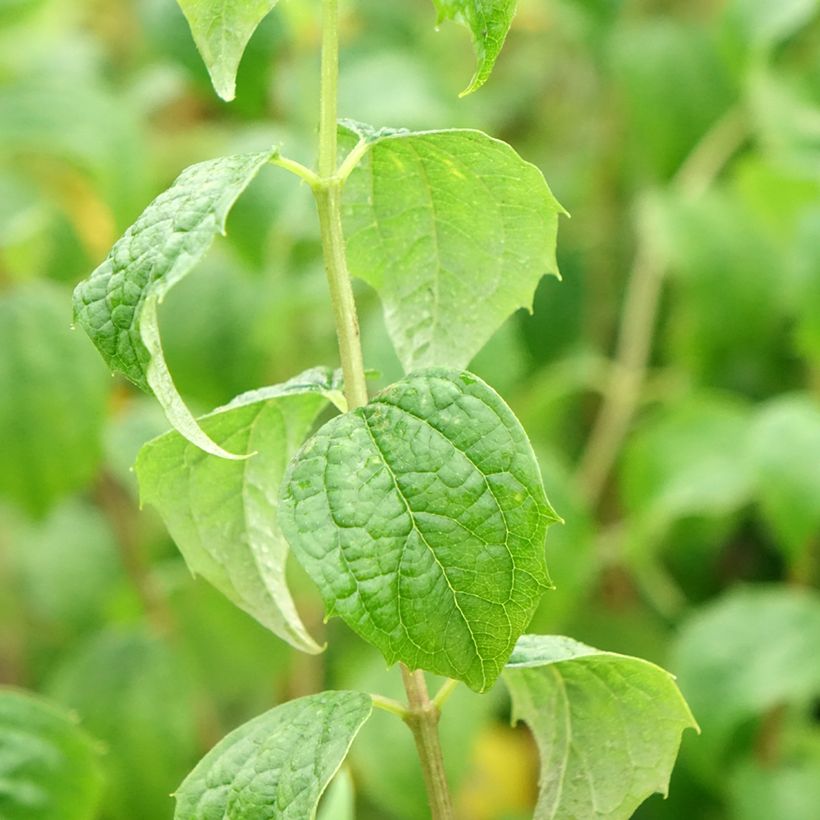

Plant habit
Flowering
Foliage
Botanical data
Philadelphus
Beauclerk
Hydrangeaceae
Mock-orange, Syringa
Cultivar or hybrid
Other Philadelphus - Mock Orange
View all →Planting and care
The Philadelphus Beauclerk, very easy to grow, requiring very little maintenance and very accommodating, is well suited to all gardens and perfect for beginner gardeners. Ordinary, poor, even limestone soil, not too dry to moist, suits it. However, it will prefer a fresh, well-drained and humus-rich soil. Very hardy, it can withstand negative temperatures up to -20°C (-4 °F). Planting is done in early spring or autumn, preferably in full sun or partial shade. Excessive heat exposure should be avoided in dry and hot climates.
Flowering on the previous year's shoots, the Philadelphus should be pruned after flowering, in July-August, by shortening the flowering branches by one third of their length. A more severe pruning can be done every 2 to 3 years, in order to keep it compact and very floriferous. Simply do not hesitate to cut the old wood and long branches down to the base of the plant to encourage branching from the base. A resistant bush, it can however be susceptible to powdery mildew and black aphids.
Planting period
Intended location
Care
-
, onOrder confirmed
Reply from on Promesse de fleurs
Similar products
Haven't found what you were looking for?
Hardiness is the lowest winter temperature a plant can endure without suffering serious damage or even dying. However, hardiness is affected by location (a sheltered area, such as a patio), protection (winter cover) and soil type (hardiness is improved by well-drained soil).

Photo Sharing Terms & Conditions
In order to encourage gardeners to interact and share their experiences, Promesse de fleurs offers various media enabling content to be uploaded onto its Site - in particular via the ‘Photo sharing’ module.
The User agrees to refrain from:
- Posting any content that is illegal, prejudicial, insulting, racist, inciteful to hatred, revisionist, contrary to public decency, that infringes on privacy or on the privacy rights of third parties, in particular the publicity rights of persons and goods, intellectual property rights, or the right to privacy.
- Submitting content on behalf of a third party;
- Impersonate the identity of a third party and/or publish any personal information about a third party;
In general, the User undertakes to refrain from any unethical behaviour.
All Content (in particular text, comments, files, images, photos, videos, creative works, etc.), which may be subject to property or intellectual property rights, image or other private rights, shall remain the property of the User, subject to the limited rights granted by the terms of the licence granted by Promesse de fleurs as stated below. Users are at liberty to publish or not to publish such Content on the Site, notably via the ‘Photo Sharing’ facility, and accept that this Content shall be made public and freely accessible, notably on the Internet.
Users further acknowledge, undertake to have ,and guarantee that they hold all necessary rights and permissions to publish such material on the Site, in particular with regard to the legislation in force pertaining to any privacy, property, intellectual property, image, or contractual rights, or rights of any other nature. By publishing such Content on the Site, Users acknowledge accepting full liability as publishers of the Content within the meaning of the law, and grant Promesse de fleurs, free of charge, an inclusive, worldwide licence for the said Content for the entire duration of its publication, including all reproduction, representation, up/downloading, displaying, performing, transmission, and storage rights.
Users also grant permission for their name to be linked to the Content and accept that this link may not always be made available.
By engaging in posting material, Users consent to their Content becoming automatically accessible on the Internet, in particular on other sites and/or blogs and/or web pages of the Promesse de fleurs site, including in particular social pages and the Promesse de fleurs catalogue.
Users may secure the removal of entrusted content free of charge by issuing a simple request via our contact form.
The flowering period indicated on our website applies to countries and regions located in USDA zone 8 (France, the United Kingdom, Ireland, the Netherlands, etc.)
It will vary according to where you live:
- In zones 9 to 10 (Italy, Spain, Greece, etc.), flowering will occur about 2 to 4 weeks earlier.
- In zones 6 to 7 (Germany, Poland, Slovenia, and lower mountainous regions), flowering will be delayed by 2 to 3 weeks.
- In zone 5 (Central Europe, Scandinavia), blooming will be delayed by 3 to 5 weeks.
In temperate climates, pruning of spring-flowering shrubs (forsythia, spireas, etc.) should be done just after flowering.
Pruning of summer-flowering shrubs (Indian Lilac, Perovskia, etc.) can be done in winter or spring.
In cold regions as well as with frost-sensitive plants, avoid pruning too early when severe frosts may still occur.
The planting period indicated on our website applies to countries and regions located in USDA zone 8 (France, United Kingdom, Ireland, Netherlands).
It will vary according to where you live:
- In Mediterranean zones (Marseille, Madrid, Milan, etc.), autumn and winter are the best planting periods.
- In continental zones (Strasbourg, Munich, Vienna, etc.), delay planting by 2 to 3 weeks in spring and bring it forward by 2 to 4 weeks in autumn.
- In mountainous regions (the Alps, Pyrenees, Carpathians, etc.), it is best to plant in late spring (May-June) or late summer (August-September).
The harvesting period indicated on our website applies to countries and regions in USDA zone 8 (France, England, Ireland, the Netherlands).
In colder areas (Scandinavia, Poland, Austria...) fruit and vegetable harvests are likely to be delayed by 3-4 weeks.
In warmer areas (Italy, Spain, Greece, etc.), harvesting will probably take place earlier, depending on weather conditions.
The sowing periods indicated on our website apply to countries and regions within USDA Zone 8 (France, UK, Ireland, Netherlands).
In colder areas (Scandinavia, Poland, Austria...), delay any outdoor sowing by 3-4 weeks, or sow under glass.
In warmer climes (Italy, Spain, Greece, etc.), bring outdoor sowing forward by a few weeks.






























